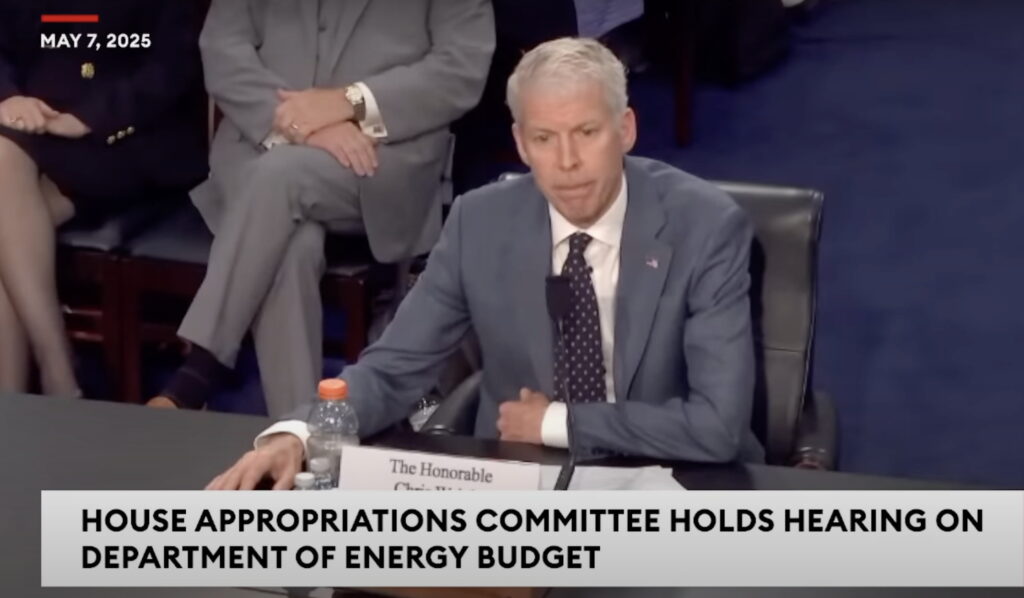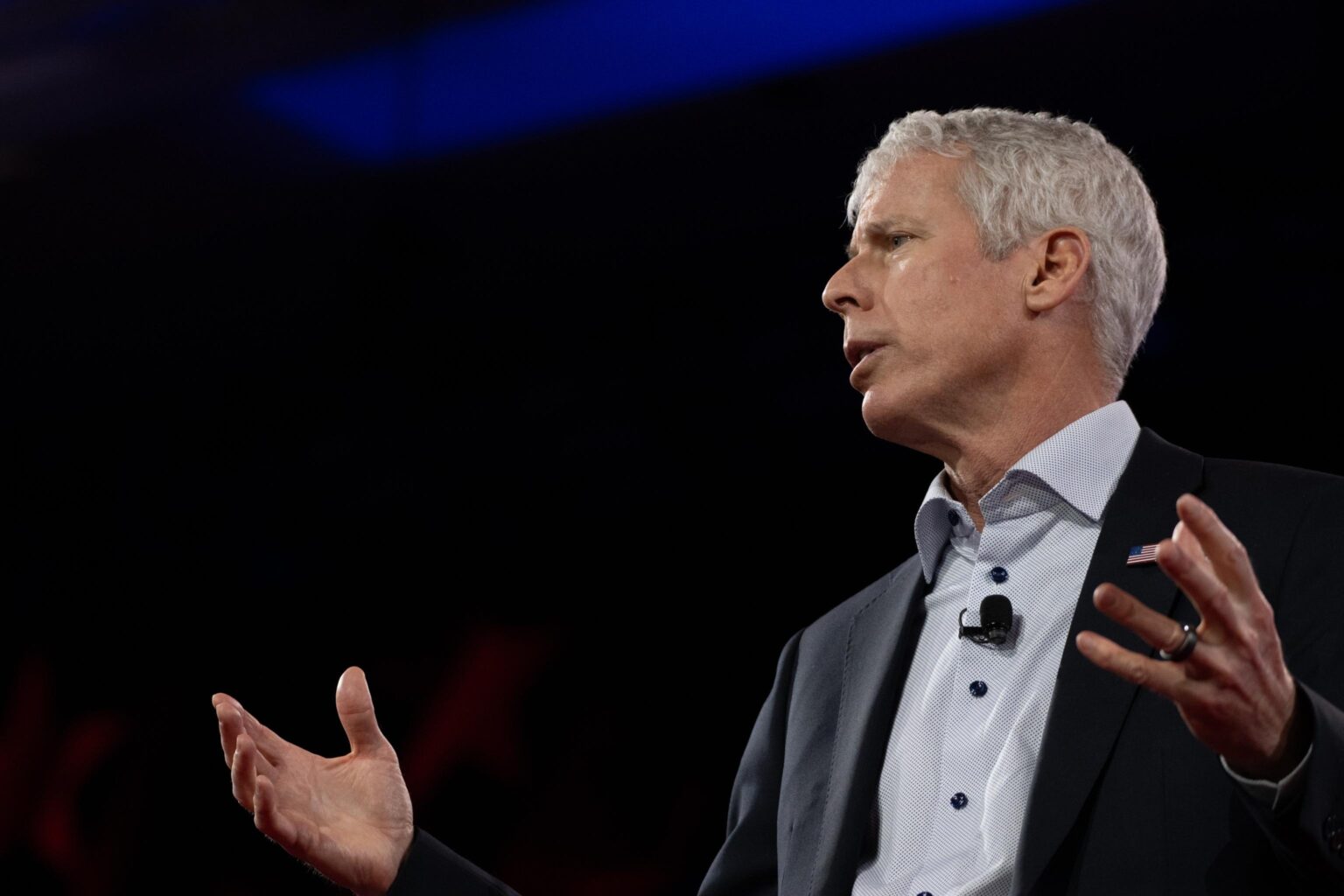When the Department of Energy (DOE) awarded $720,000 to Libbey Glass in mid-September, it was as a first installment toward a multi-million dollar furnace upgrade project that would slash climate-altering emissions from Libbey’s Toledo, Ohio, factory by 60 percent.
Electrifying the furnaces at one of the world’s largest glass tableware makers would not only improve air quality in “The Glass City” and help to combat climate change, it would also help show how the “difficult to decarbonize” glass sector could be modernized, DOE officials noted as they announced the federal government would cover up to half of the Libbey project’s $90 million price tag.
Fast-forward to today, and Libbey sits in limbo even after Congress pressed Energy Secretary Chris Wright to explain the DOE’s ongoing funding freezes at a House Appropriations Committee hearing on May 7.
Subscribe to our newsletter
Stay up to date with DeSmog news and alerts
The fate of the glassmaker’s $45.1 million award plus tens of billions of other Energy Department awards, grants, and loans remains caught in the crossfire between newly elected President Trump’s spree of slash-and-burn executive orders, and court orders requiring his administration to stop its funding freezes — temporarily at least.
“Even if DOE chooses not to cancel any of these awards, these actions are creating mass confusion,” Rep. Marcy Kaptur, (D-Ohio), told Wright at the hearing, offering Libbey Glass’s situation as an example. “Unemployment is going up in our area,” she added.
The Energy chief had planned to testify in support of the Department’s budget request for 2026, but Democrats shifted the focus to the agency’s large amount of unreleased funds, which is stalling renewables and clean energy development.In response to Kaptur, Wright denied that the Department of Energy had frozen any funds, faulting “headlines” he told Congress were false. “We don’t have a single unpaid invoice at our department,” he testified before the committee. “Not one.”
On Jan. 20th, the Department of Energy had issued a memo instructing staff to “put on hold” awards and announcements and to stop funding activities pending a review — part of a wider federal funding freeze that’s triggered a host of ongoing legal battles over the fate of hundreds of billions of federal dollars.
Libbey’s CEO did not respond to a request for comment from DeSmog.
As Trump’s 100th day in office drew to a close the end of last month, his administration had frozen or canceled over $436 billion in federal funds, according to a frozen funds tracker released by the Democratic staffs of the House and Senate Appropriations Committees.
Over $77 billion — more than one-sixth of that total — was frozen by the Department of Energy. Only the Department of Homeland Security, where the Federal Emergency Management Agency froze more than $100 billion in disaster-response grants, had more funds frozen than the DOE.
The stopped DOE funds were slated to help Americans lower their energy bills via rebates for efficiency upgrades, fund electrical grid modernization, and for business loans that would help companies deploy new clean energy innovations — like Libbey’s hybrid electric glass furnaces.
Frozen in Uncertainty
“We have not frozen funding,” Wright testified in response to Democrats’ grilling over the fate of billions of dollars unreleased in DOE’s current budget.
“I’ve received numerous — dozens of letters, accusing me of things that are reported in headlines, in blog posts and media all over the place, almost all of which are false,” he told Congress. “I’ve not responded to the dozens of letters yet, because we’re in the middle of reorganizing the department.”
The claim that the federal government did not freeze funds, which Wright repeated throughout the hearing, drew strong pushback from Democratic members of Congress.
“Even now, more than $67 billion remains frozen, this is in clear defiance of both Congressional intent and multiple court orders,” Rep. Debbie Wasserman Schultz told Wright during the hearing. “We’re talking about shovel-ready projects tied to contracts with American businesses that will result in energy bill savings for families.”
Wright continued to reject the idea that any DOE money was frozen.
“We’re not withholding any funds,” Wright testified.
“I knew you were going to say that and I’m happy to go through the energy programs that you are currently withholding funds for,” the Florida Democrat responded, listing several multi-billion programs.
Wright responded by expressing uncertainty about what the question meant.
“So, what does frozen mean?” Wright asked.
“I mean like not released,” responded Wasserman Schultz. “It’s a standard dictionary definition. If we’ve appropriated the funds and the Department of Energy is supposed to release them to the recipients, and they have not received them and they’re not getting answers.”

“Every day that this money remains frozen, real families are facing high utility bills, local businesses delay or cancel clean energy projects, and so I hope you’re prepared to take responsibility for the consequences of those actions,” the representative told Wright.
“It’s very clear that you’re violating the law by holding onto them,” she concluded.
Frozen at the Finish Line
One of the companies still seeking information from DOE about its funding status is the battery diagnostic firm ReJoule.
When an electric vehicle gets into a collision and arrives at a scrapyard, one big question is whether its battery is worth saving. Recyclers have to ask, What’s the battery’s remaining capacity? Is it safe to pull it out and re-use it?
ReJoule aims to help auto recyclers and others handling used batteries quickly answer those questions.
Because manufacturing new large batteries is so resource intensive, getting the most use of every battery offers significant climate and environmental benefits, Zora Chung, ReJoule’s chief financial officer and co-founder, told DeSmog.
Last year, DOE’s Office of Clean Energy Demonstrations awarded up to $10 million for a project led by ReJoule that would help take used lithium-ion batteries from EVs and repurpose them for microgrid electrical power projects, giving EV batteries a new life and helping to displace fossil fuel “peaker” plants, which are designed to meet high electricity demand during peak periods.
The first phase of that project is in progress, Chung told DeSmog. “That’s the one where we have the invoices that have been paid,” by DOE, she said. “That one is moving along but we are up for renewal for Phase Two of the grant and that’s where we’re really — we haven’t gotten any communication.”
Some payments were delayed as the new administration took over, Chung said, attributing the wait — which she described as minor — to staffing cuts at DOE.
Members of Congress had also asked Wright about staffing levels during the Hill hearing. Wright testified that less than 1,000 staff members had left the Energy Department since January 20..
The DOE later told Politico’s E&E News that Wright had left out employees who chose to exit the agency under its “deferred resignation program.” Sources told E&E News that at least 3,500 DOE employees took that path — which would mean roughly a quarter of the DOE’s roughly 16,000-person staff are headed towards the exit doors or have already left.
The DOE also selected ReJoule, a small California-based company, to receive $6.3 million toward checking for safety hazards when auto recyclers handle used EV batteries — but it’s now unclear what the status of those funds might be, too.
“Usually there’s very firm deadlines that the government tries to stick to when awarding these contracts because you have to get a lot of things in place to make it happen — and that’s the part where we haven’t seen any movement at all,” Chung said. “We haven’t gotten any updates.”
It’s not clear whether some projects will be entirely scrapped by the new administration — and if so, what criteria the DOE plans to use as it decides which projects should survive.
“We’ve been reaching out to Secretary Wright to try to get some time to help make a case for that or to understand what’s the criteria,” she said.
Shortly before Wright’s testimony last week, the White House called on Congress to slash $19.3 billion from the DOE’s 2026 budget, particularly what it called “Green New Scam” funding — without explaining exactly what falls into that category. The White House proposal increased fears that green energy projects broadly will be targeted for cancellation — without offering clarity about which specific projects are most at risk.
Like most applicants for DOE funding, ReJoule invested significant resources in seeking out federal funds, in response to the DOE’s request for applications. “It’s not a small amount of work just to do the application,” Chung told DeSmog. “It’s usually a few people for a few months, going back and forth with DOE to finalize these details.”
“Uncertainty for business is one of the hardest things to deal with because even if you have bad news, at least if you know how you’re supposed to operate, people can move in that direction,” she said. “But the longer that you go in limbo, the harder it is to do business.”
“It’s just more frustrating when you literally get to the finish line,” Chung said, “but they won’t let you cross.”
Subscribe to our newsletter
Stay up to date with DeSmog news and alerts






